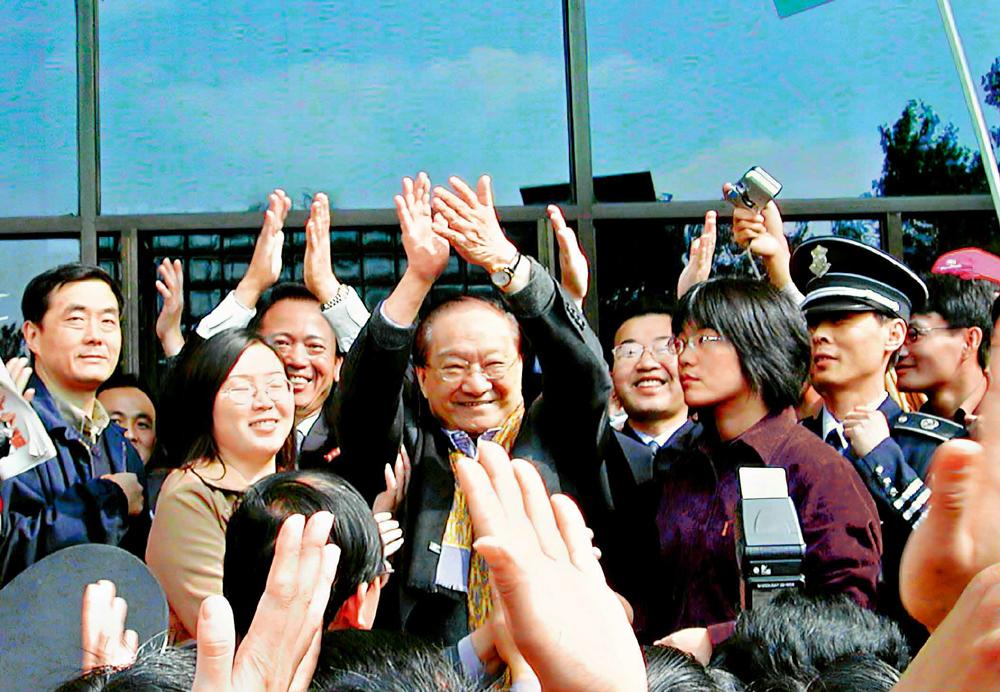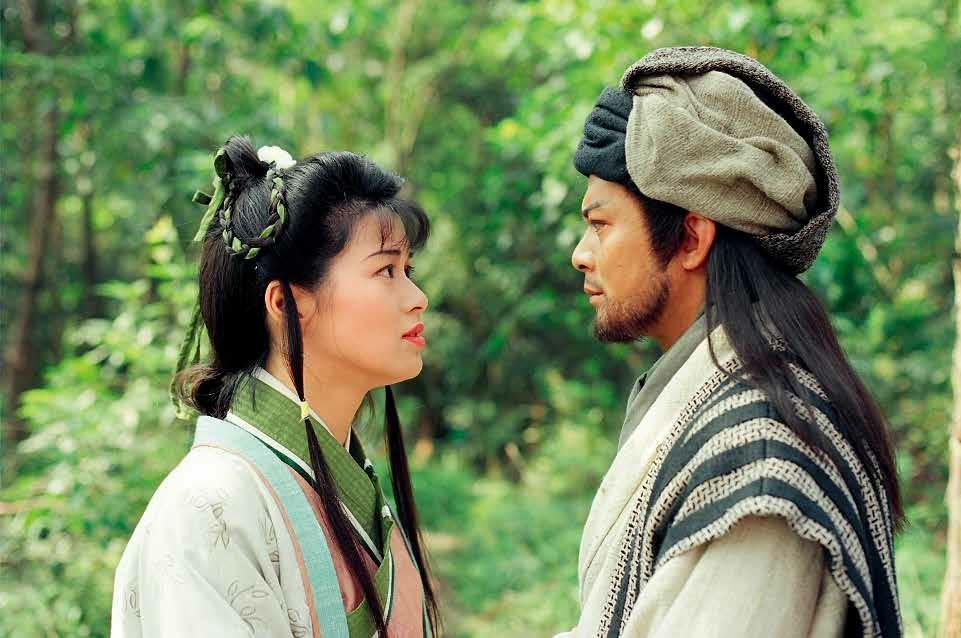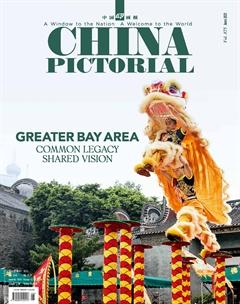Hong Kong Identity in Jin Yong’s Works
by Xing Zhefu
Louis Cha, better known by his pen name Jin Yong, was one of the most well-known martial arts novelists in modern China. He enjoyed unshakable literary status after authoring 15 martial arts novels. Official English translations of Legends of the Condor Heroes, Flying Fox of Snowy Mountain and The Deer and the Cauldron are popular in the United States and the United Kingdom. And Jins international fans have already translated all his collections into various languages. Back on January 3, 1989, the New York Times wrote of Jin Yong: “To Chinese readers, he is virtually a one-man literary movement, more a genre than an author.” Jins martial arts novels are one of the peaks of Hong Kong culture. While telling the stories of knights and swordsmen, Jins works simultaneously demonstrate Hong Kong peoples love for their homeland and their search for national identity.
The patriotism, chivalry and enterprising spirit embodied by the heroes and heroines in Jin Yongs novels can be traced back to the profound cultural tradition of the Lingnan region.
Legends of the Condor Heroes centers on Guo Jing, son of Guo Xiaotian (Skyfury Guo), a righteous swordsman in the Southern Song Dynasty(1127-1279). Guo Jing grew up in Mongolia and became a knight. Yang Kang, the son of Yang Tiexin (Ironheart Yang), another noble man, joined the Southern Song Dynastys enemy, the Jin Dynasty (1115-1234) of Mongolian people for fame and wealth. When Mongolia invades the Southern Song Dynasty, Guo Jing discards his love for Mongolia and turns to fight the enemy with his wife Huang Rong. The main characters of the novel are Guo and Huang. They are typical Chinese heroes, standing up when the nation is in peril. They are hailed for their honesty, sense of responsibility, patriotism and readiness to sacrifice their life for justice, the country and its people.
The Song Dynasty hero Qiao Feng (called Xiao Feng in the Khitan tribe) of Demi-Gods and Semi-Devils is a relatively complicated figure. The character captures the identity anxiety and struggle among Hong Kong people at a deeper level. Jin Yong described Qiao Feng as a hero of the Central Plains of China during the Song Dynasty(960-1279). He appears in the story with flawless martial arts and high prestige. The hero becomes involuntarily involved in a whirlpool of national collisions because of his peculiar identity: He was born in Khitan and grew up in the Central Plains. This identity confusion plagues his entire life. When the Khitan people invade the Song Dynasty, Qiao Feng commits suicide in the battlefield to make the warring parties stop the war. In Demi-Gods and Semi-Devils,Qiao Feng is both Xiao Feng of the Khitan tribe and Qiao Feng of the Song Dynasty. A one-character difference in the names indicates opposing political identities.
The novel was completed in 1966 when Hong Kong was still under British colonial rule. “With no family name” was another portrayal of the Hong Kong desire for national identity after enduring long-term rule by colonists from a different culture. Chinese blood has always pumped through the native Hong Kongers. Contrasting ideologies led to long-term cultural isolation. This caused identity anxiety to cut deep into the hearts of Hong Kong people. Blood and culture created a deep tension and divide.
The tension and wrestling of Qiao Feng is a representation of the tortured psychology of Hong Kong people. Where is the escape from this dilemma? Answers might be explored in the story of Wei Xiaobao from The Deer and the Cauldron. Wei accidentally enters the Forbidden City(the royal residence) of the Qing Dynasty (1636-1912), he ends up becoming a sworn brother of the Kangxi Emperor and his trusted confidant. While out of the palace running errands, he mistakenly joins the anti-Qing group Tiandihui (the Heaven and Earth Society) and formally pledges loyalty to Chen Jinnan, the leader of the group. When the Kangxi Emperor starts planning to destroy the Tiandihui, Wei tips them off out of loyalty to Chen and abandons his official post and noble title to return to his hometown.
Although Wei Xiaobao is a success who gets away with everything, the character leads readers through the clear value judgment sequence happening in his mind. Wei ranks Tiandihui and leader Chen Jinnan first. His admiration for Chen Jinnan is fueled by a feeling of belonging because Chen is fighting to restore Ming Dynasty (1368-1644)s rule just before the Qing. His friendship with the Kangxi Emperor is a personal relationship between two individuals who met by chance. The fractured nature of Qiao Fengs character is completely gone from Wei Xiaobao. Jin Yong may have found his ultimate representation of the contradictions of Hong Kong in Wei Xiaobao.
Cultural identification is the deepest level of identity. Hong Kong culture shares roots with Lingnan culture prevailing in the Guangdong-Hong Kong-Macao Greater Bay Area. The common historical and cultural memory is the foundation of Hong Kongs natural recognition of the “one country, two systems” policy. Jin Yongs novels explore the complex and profound identities in the hearts of Hong Kong people. Although a struggle is unavoidable, the ultimate nostalgia is always for the homeland where the“sea breeze has blown for five thousand years.”

